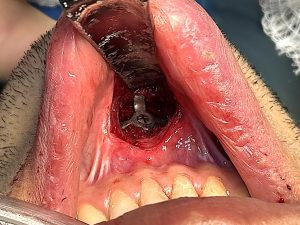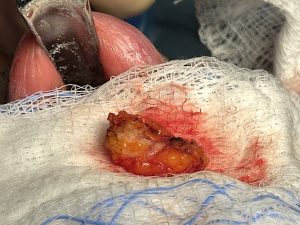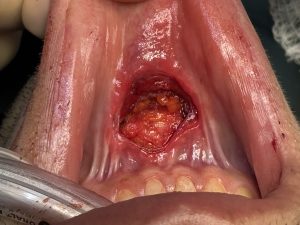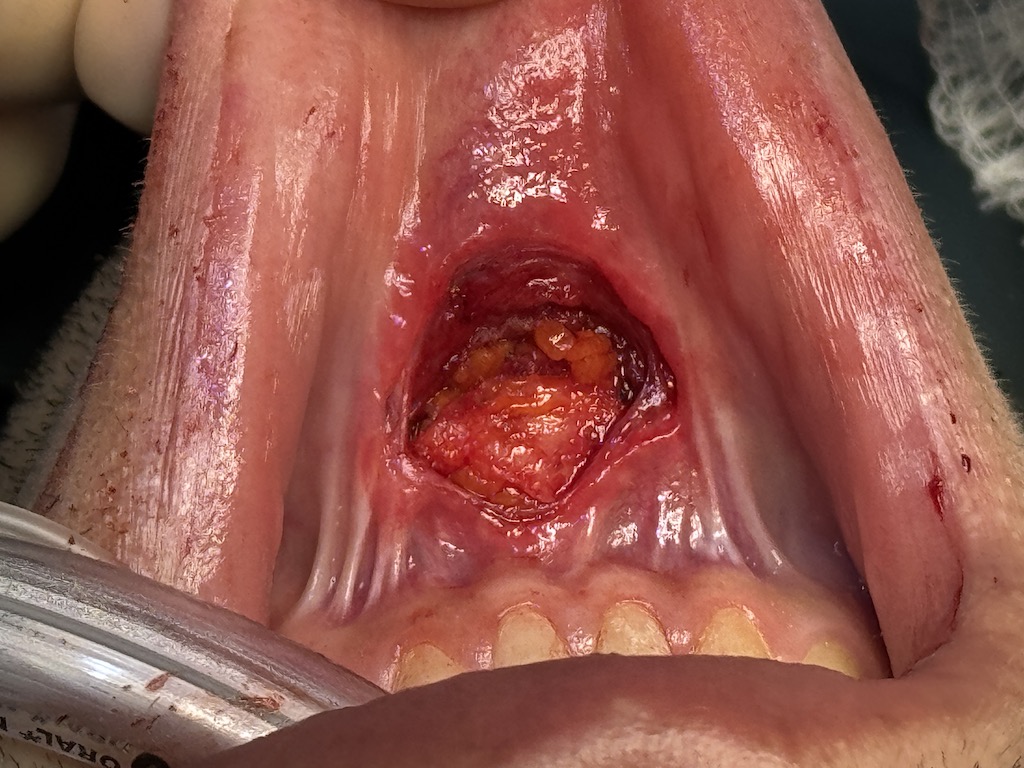There are a lot of great benefits to a sliding genioplasty chin augmentation procedure but, like all procedures, it has its own unique complications and adverse postoperative sequelae. One of these postoperative issues that can occur is lower lip tightness. Like the upper lip the lower lip is very flexible through the depth of the vestibule and its ability to be easily pulled forward.
But the sliding genioplasty by definition makes its entrance through the vestibule and must transect the origin of the mentalis muscle to reach the bone. While the transected metanlis muscle is out back together and the vestibular mucosa closed it is easy how scar tissue from this process may make the lower lip less flexible. That alone might be enough to cause this postoperative problem but the bony stepoff from an advancement and the increased bone surface area that needs to be covered can be another contributing factor.
While some initial lower lip tightness is to be expected in the healing phase when it fails to adequately resolve in 3 to 4 months after the surgery intervention may be warranted. Non-surgical methods such as steroid, fat or PRP injections can be used. Their effectiveness is not assured and, if they were to work, it would be in the first few months after the surgery. Beyond that it must be treated like a conventional scar contracture with release and grafting.



In severe lower lip tightness after a sliding genioplasty the introduction of healthy soft tissue in a released scar contracture should result in a reduction of the symptoms. Such fat grafts do survive fairly well with usually greater than 50% or more in volume retention.
Dr. Barry Eppley
World-Renowned Plastic Surgeon



